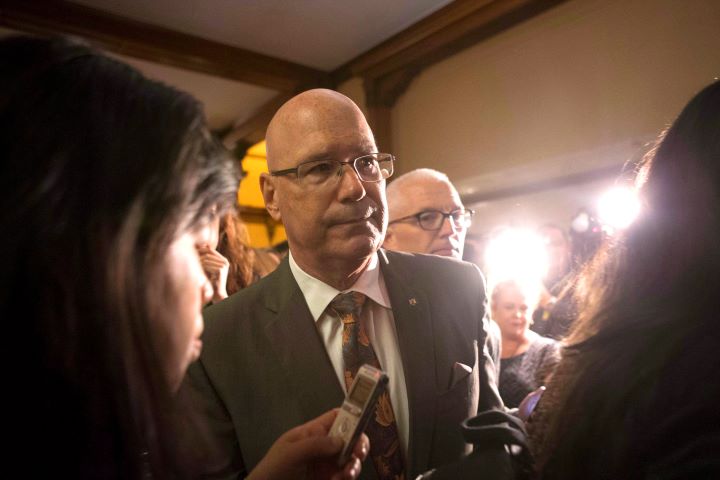The Ontario government released the results of its municipal review on Friday and anticipated changes to some of the regional governments failed to materialize.

“So the announcement today was to make it very clear that our government will not impose any changes on municipalities,” Municipal Affairs Minister Steve Clark told reporters after speaking to members of the Association of Municipalities of Ontario in London on Friday morning.
“So, in other words, there will be no forced amalgamations. There will also be no forced de-amalgamations and there’ll be also nothing imposed on a council in terms of size.”
READ MORE: Ontario announces review of regional governments across province
Employees with Waterloo region had previously told Global News that they had been expecting to see some sort of amalgamation by the end of the year while the City of Mississauga had been hoping to break away from Peel region.
Instead, the Ford government said it will offer $143 million to 444 municipalities across the province to search for ways to lower costs and improve services.
“We’re going to allow the 405 small rural and northern communities to actually do some of the programs that the large urban communities did. Line by line reviews, actual service delivery reviews,’ Clark said.
READ MORE: Mississauga asks residents to send Premier Ford postcards advocating independence from Peel
In January, the province appointed a team of special advisors to conduct a review of the regional government model.
This review was tasked at looking at the eight regional municipalities (Durham, Halton, Muskoka, Niagara, Peel, Oxford, Waterloo and York,) the County of Simcoe and their 82 lower-tier municipalities.
Former Waterloo regional chair Ken Seiling was one of Clark’s advisers, with the other being Michael Fenn.
“They met extensively with the eight regions and also the county of Simcoe,” Clark said.
READ MORE: Media barred from fireside chat with Premier Doug Ford
“There was incredible conversation at the municipal level about how to approach becoming more effective and more efficient,” Clark said.
Waterloo Region Chair Karen Redman told Global News that she was happy the process has come to an end.
“I think the clarity after a year of distraction of wondering what this governance review would produce is very welcome,” she said.
She applauded Clark and his staff for how it came to its conclusions.
“I really commend the government for not taking the approach that one size fits all because I truly don’t think it does,” Redmond said. “And I was also pleased that what drove any decisionmaking wasn’y purely the number of elected officials because there was talk of that previously.”
READ MORE: A list of cuts and changes Doug Ford has made this year as he tries to balance the budget
The ministry also announced two other changes it will consider going forward.
It said it will consult with municipalities on the idea of aligning the municipal and provincial fiscal years. Currently the municipal year starts on January 1, while the provincial year begins on April 1.
“I really want to take the time to sit down with groups like AMO and other partners to look at the feasibility of changing that,” Clark told reporters after speaking at the Association of Municipalities of Ontario.
The province also announced that it will combine provincial and municipal voter lists in an attempt to avoid duplication.
“It’s been an idea that’s been kicked around for decades and the chief electoral officer recommended it,” Clark said.
He noted that it could take a couple of election cycles to accomplish the task.




Comments